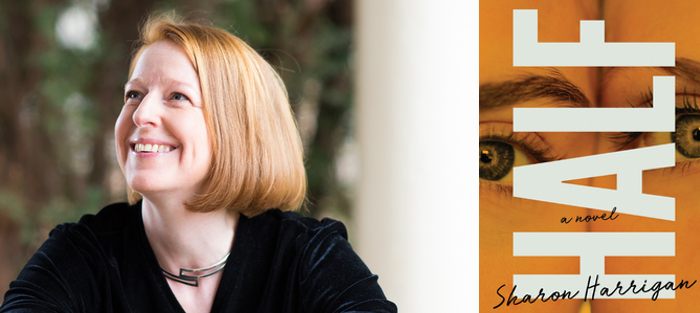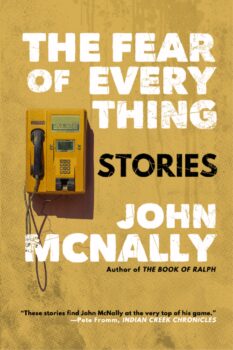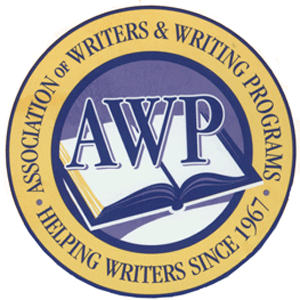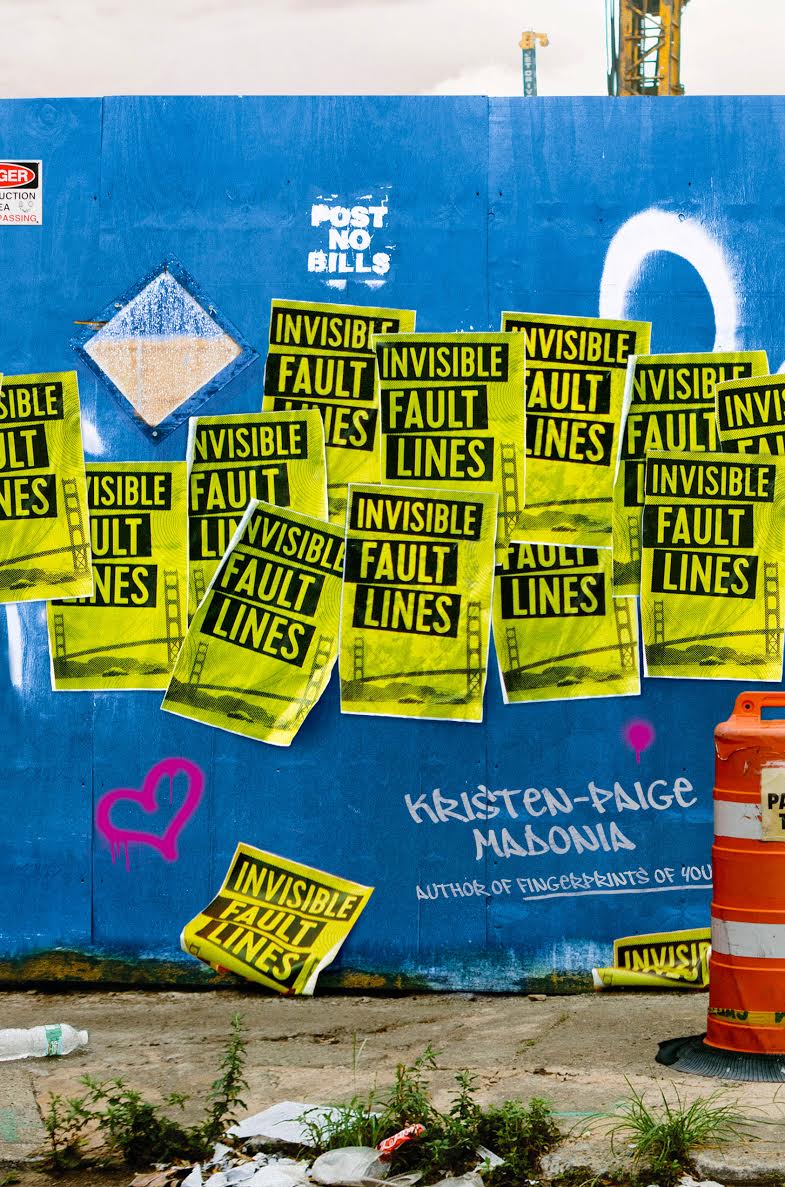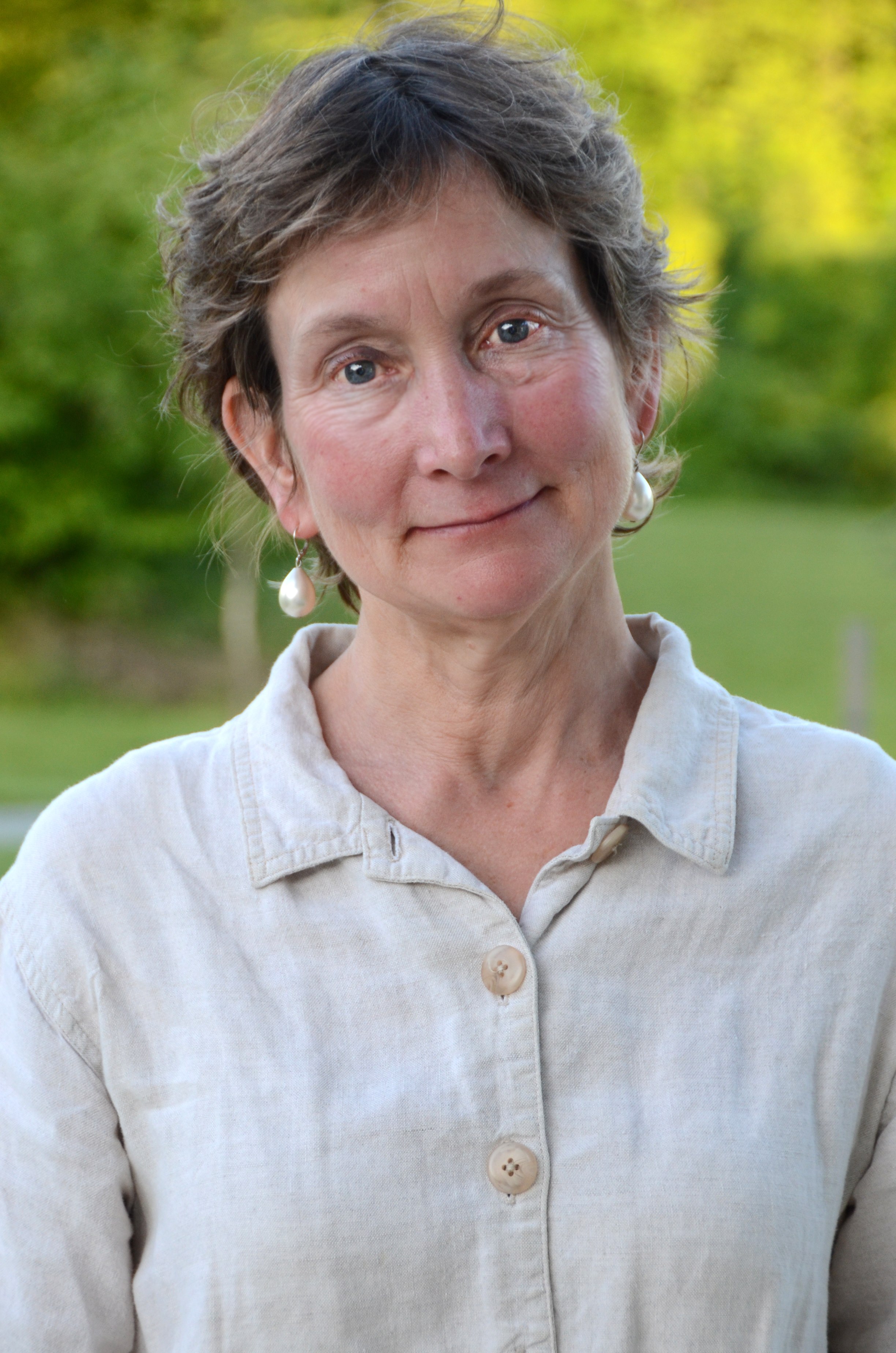I met Sharon Harrigan last fall, during a couple of unusually chilly November weeks at the Virginia Creative Center for the Arts, the artists’ residency in the rural hills outside of Lynchburg. As we talked over meals amid visual artists, writers, and musicians, I grew to treasure Sharon’s wisdom and unpretentiousness—and her red hair, a welcome dash of color in a place and season that was quickly turning brown and gray. We soon discovered that we both had returned to fiction writing after some years away, and that we both had novels coming out the following year. Since presenting work to the other fellows is the custom at places such as VCCA, we decided that we should plan a reading together. Several evenings later, after I’d read from my work, I settled in with the other VCCA residents in front of a blazing fire, and was introduced to Harrigan’s fiction. I was astounded.
She read aloud from the first chapter of her debut novel, Half, in which we are introduced to a volatile, sexually charged marriage through the eyes of the couple’s twin five-year-old girls:
Mom made animal noises on the other side of the door, dog shrieks, worse than our whimpers when Dad punished us for breaking a glass or sharing a secret. We wanted to save her but we were stranded on an island the size of this hallway, and if we stepped out we would drown.
In a few pages, Harrigan shoves us into the world of these children, a swirling vortex of violence and sweetness, centering on the troubling unpredictability of their parents. In our conversation below, I learned why the girls’ father comes to feel like the engine of their story, and why the novel’s portrait of him is both disturbing and deeply moving.
Our conversation was carried out via Google Doc in February and March of 2020. Harrigan was at her home in Charlottesville, Virginia, where she lives with her husband and teenage daughter, and I was researching my next novel in Berlin, just as the coronavirus was beginning to creep across Europe. At that point in time, which now feels like ancient history, we were unaware how relevant our closing exchange about “darkness” in fiction (and in life) would turn out to be.
In addition to this novel, Sharon Harrigan is the author of a memoir, Playing With Dynamite (2017). Half was a finalist for the prestigious AWP Novel Prize, and the story upon which it was based won the Cecilia Joyce Johnson Award from Key West Seminars and the Kinder Award from Pleaides Magazine.
Interview:
Debra Jo Immergut: Because it’s what everyone’s going to be talking about when they read this novel, I have to start with a question about the point of view you’ve chosen. It’s the first big surprise for the reader, it’s such a bold stylistic move. But it’s also a choice that seems intimately linked to the novel’s action and ideas. Can you walk me through your decision to write in the first-person plural—the twinned voices of these twin sisters—and talk about what some of the challenges you faced along the way, once you’d made this choice?
Sharon Harrigan: This story wouldn’t exist if it weren’t told in the first-person plural. The only time it makes sense to use an unusual point of view is when it’s impossible to tell the story any other way. Otherwise, the choice feels gimmicky.
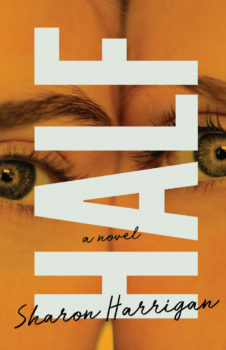 I started with characters and a relationship—my brother and me when we were growing up. We were close in a way that felt normal then but feels magical now. Bookish kids in a working class environment, recovering from the trauma of our dad dying very young, we didn’t fit in, so we made our own little two-person island. My first version was about a sister and brother a year and a half apart, about the special intimacy of siblings, who share both biology and environment. But because it’s fiction, I was able to make it more dramatic in the revision, to take something real as a starting point then push it to its logical extreme. That’s why I changed the characters to twins. And after that, I exaggerated further and made them almost the same person. How intimate is it possible to be? I asked myself. So intimate that two people speak in the same voice.
I started with characters and a relationship—my brother and me when we were growing up. We were close in a way that felt normal then but feels magical now. Bookish kids in a working class environment, recovering from the trauma of our dad dying very young, we didn’t fit in, so we made our own little two-person island. My first version was about a sister and brother a year and a half apart, about the special intimacy of siblings, who share both biology and environment. But because it’s fiction, I was able to make it more dramatic in the revision, to take something real as a starting point then push it to its logical extreme. That’s why I changed the characters to twins. And after that, I exaggerated further and made them almost the same person. How intimate is it possible to be? I asked myself. So intimate that two people speak in the same voice.
Tayari Jones once said that fiction writers often take something that happened to them, then they push that thing to its extreme, and that’s how you get narrative drama. That’s what she did with her novel Silver Sparrow. She took her own experience growing up with step-siblings and imagined the extreme version of that: two girls sharing the same father, one part of his public family and one part of his secret family. That’s the beauty of fiction. You can arrive at a deep emotional truth better sometimes when you don’t stick with the literal truth. The extreme version can illuminate so much more clearly.
You did the same thing really effectively in your upcoming novel, You Again. (By the way, I love that we are reading the advance copies of each other’s novels at the same time—the simultaneous, twinned reading experience.) You took an experience from your life—being metaphorically haunted by memories of your youthful hopes and ambitions—and made the metaphor literal, so the novel can tell the story of a woman who is literally haunted by her twenty-two-year-old self. Right?
Absolutely! I’m with you and Tayari—writing fiction gives you license to exaggerate and embroider and lie about your life—and that’s the fun part. And it gets you closer to the bone, somehow.
As for writing from this first-person plural point of view, it was a technical challenge. That’s part of what I liked—the puzzle solving. The hardest was when the girls start having romantic and sexual relationships. I had to figure out how to give them separate physical experiences but keep them linked in their minds and hearts.
I thought you handled that transition brilliantly. A gradual separation. And it makes sense to me that it begins with the physical.
I’m glad you think so. The physical and sexual stuff could have been creepy and cringey if I didn’t get it right.
Your writing is so visceral and body-based. Even the weather is described that way: “fall bled into winter.” I marked many passages that wowed me with their deep grounding in physicality and tactility. Is that typical of all of your work, or did this story, so rooted in biology, right at the cellular level, push you toward that type of description? It certainly fits!
I wouldn’t say this style is typical of my work. The style has to fit the story, and every story is different.
I made the twins always aware of inhabiting their bodies because that’s what it felt like for me to be young and female. I see my daughter having this experience now too. Society constantly reminds us about bodies. We’re not allowed to forget the attention our developing hips and breasts attract when we’re catcalled or stalked or spied upon–which happens to the twins. We’re not allowed to forget that our bodies create desire. But one of the things I hope comes through is that these girls have their own desires. Desire for fame, power, and, yes, for sex.
The visceral quality also comes from my wanting to show what it must feel like to be so close to someone that you’re aware of that person’s bodily sensations. The familiarity feels both comfortable and claustrophobic.
And there’s a primitive, timeless aspect to the story, the part that channels a world in which a god’s anger manifests as thunder and lightning. Staying close to the body felt true to that.
This novel is grounded in a harsh, very real world—a working-class family in Michigan, scraping to get by—but then there are many moments when we feel the story entering another realm. Mythology and magic often come into play. Have you always had a fascination with ancient mythologies? Would you define yourself as mostly a realist, or mostly a fabulist? How did you navigate the boundary?
The point of view itself is magical if you buy into it on a literal level, since it requires readers to believe two people can speak in one voice and read each other’s thoughts. Once I realized magic had to be part of the story, I allowed myself to weave in a mythical thread.
But, as the novel progresses, the narrators learn that all the magical and mythical elements can also have possible scientific explanations. The story can be read on two different levels, fabulist or realist. Even the point of view could be interpreted as a metaphor. At the beginning, the narrators tell us, “As identical twins, we spoke in one voice. People responded to us, at least, as if we did.”
This is one thing I love about your novel, You Again. The narrator keeps running into her younger self. To her, it feels like something magical is happening. But readers also get glimpses into possible scientific explanations, so we can read this haunting on two different levels. Right?
Yes! We are both playing with doppelgängers and stories that operate on several levels at once.
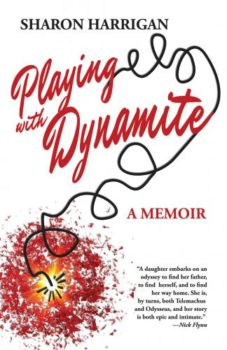 Real life exists in the duality of scientific and magical explanations, the literal and the metaphorical. For instance, a couple months ago my voice broke in half, which is what happens to the narrators of my novel. There’s a literal explanation—a virus damaged a nerve that paralyzed one of my two vocal cords. But the event exists as metaphor at the same time. The experience started with a pain in my throat in response to my brother telling me about something bad happening to him. His psychic pain became my physical pain. I am an emotional sponge, so this happens all the time. It’s a physical manifestation of empathy. We are all in this together, my body says. What happens to you, happens to me. That’s part of what makes the “we” voice feel so true.
Real life exists in the duality of scientific and magical explanations, the literal and the metaphorical. For instance, a couple months ago my voice broke in half, which is what happens to the narrators of my novel. There’s a literal explanation—a virus damaged a nerve that paralyzed one of my two vocal cords. But the event exists as metaphor at the same time. The experience started with a pain in my throat in response to my brother telling me about something bad happening to him. His psychic pain became my physical pain. I am an emotional sponge, so this happens all the time. It’s a physical manifestation of empathy. We are all in this together, my body says. What happens to you, happens to me. That’s part of what makes the “we” voice feel so true.
I think of myself as both a realist and a fabulist. For good or bad, I have not found my “brand”— I don’t stick to one thing. I write fiction, nonfiction, adult novels, children’s novels, and poetry too.
And yes, I’ve always been fascinated by Greek myth. Before my daughter could read, she used to listen to the myths on repeat and beg me to read them again and again. Homer’s Odyssey is the one book I have of my own father’s, with his notes in the margins. So associate my father—and by extension, all fathers, perhaps—with Greek myths. Also, because my father died when I was seven, I remember him mostly as a mythical figure.
What a difficult age to lose a father! I wonder how that loss, so many years later, might have influenced your creation of Moose, the father of Paula and Artis.
Moose has a little bit in common with my dad. And some of the regret in the story comes from my inability to say all the things I wish I could have said to him.
He’s definitely a man who seems to come straight out of legend, the ancient past. The girls take a college class called “Heroes and Monsters”—and of course, their dad was both.
You could say all parents are both heroes and monsters, from their kids’ point of view, at different times in their lives. A five year old’s world revolves around her parents, and she thinks they are perfect like gods. Teenagers sometimes go through a period when they can’t stand their parents. So with the father character, I am taking something real (the hero/monster paradox of parenthood) and pushing it to its extreme. Hero/monster characters have been in the news a lot lately: Harvey Weinstein, Woody Allen, Roman Polanski, Michael Bloomberg, to name just a few—brilliant, charismatic people with power who think the normal rules don’t apply to them. People who are magnetic and repulsive, depending on whom you ask and when.
Your central characters—the twins and Moose—are so charged with vitality, so monumentally strong-willed; the girls are definitely their father’s daughters. I’m wondering how even you, the author, were able to control that will. Did these vivid characters drive the plot or did you have a pretty strong sense from the beginning of how they would end up? Once you created these “heroes and monsters,” I can almost imagine you having to fight them for the steering wheel of this novel. Did it ever feel like that? In your fiction, would you say you’re generally character-driven, plot-driven, or perhaps style-driven? Your style is quite singular and remarkable too.
I wouldn’t say plot drives the story. I started my writing life as a poet, and I still find plot hard. I didn’t add the “through line”—the murder mystery thread—until I’d already finished a few drafts. I don’t know if it’s clear when you’re reading, but the book is structured like the movie Boyhood: it’s a coming-of-age story, and each chapter moves ahead one year in the characters’ lives.
I just read an interview with an Irish playwright who said that he sits down to write at his dining room table and gives each of his main characters a chair, with one chair for the minor characters to share. He waits for them to talk, and he transcribes what they say. That is not what I do, but maybe I’ll try it some time. Talk about a character-driven story!
My process when I was writing the first draft was to immerse myself in the book’s “universe” before each writing session. And to me, the book’s world is the book’s language, so sometimes I took a page from a book that had the kind of distilled, musical language I was looking for (Justin Torres, Julie Otsuka, Jim Crace, Christine Schutt, Seamus Heaney) and copied it in longhand in a notebook. Often, I read the words aloud, to get them into my breath and my body.
So I guess you could say the book was style-driven. In a visceral way.
I really enjoyed your writing about the twins’ musical endeavors and how they transformed themselves into rock goddesses. You do such a great job of capturing the raw energy of a garage band, amid the power tools and weed whackers and crackling Christmas lights. Are you musical? What inspired that element of the story?
When I was a teenager my boyfriend was a lead guitarist in a punk band, and I hung out with the members of his and his friend’s bands. There’s a lot of energy and fun and joy in that scene. For me it’s the sound of adolescence.
The other answer is that I made Paula a musician with almost supernatural talent because she is named for Apollo, god of music. Their father gives the twins mythic names that he expects them to live up to, and they rebel against these expectations but also embrace them. I’m playing with the question of fate but also social mobility. How much do we become the people our family situation predicted we would?
Did you listen to music while writing? Or was there music that inspired this work?
I didn’t base my twins on Tegan and Sara [a Canadian indie band], but last fall I was listening to a radio interview with them, and I thought, These are my characters! They exist in the real world. Two identical twins who got a record contract as teens, who had a cult following but dealt with a lot of harassment because they were women. I laughed out loud at the similarities.
When I was writing about the music the twins play, sometimes I thought about the music that lured me in when I was young, like Lou Reed, The Velvet Underground, The Ramones, and Laurie Anderson. But the twins are closer to my daughter’s age (they were born in 2000, and she was born in 2003), so I listened to her Spotify playlists for inspiration. Mitzki is probably the closest to what I imagine the twins’ music was like. She sings about the experiences of being young and beautiful and the power and terror of that.
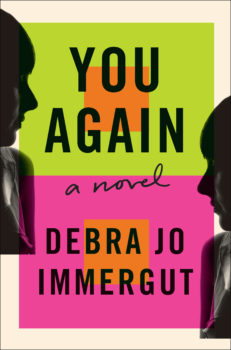 We’ve both written what some might call “dark” fiction—though I think we both are hoping to strike many different emotional chords (speaking of music!) in these stories—the tragic and the joyful, the chilling and the warm. I just had an interesting chat with a bookseller in Dallas who told me she often has to badger readers into giving a darker book a try. You can hardly blame them; these are dark times. I’m a big believer in catharsis though—I think it’s vital and, hopefully, rewarding to go to those dark places. What do you think?
We’ve both written what some might call “dark” fiction—though I think we both are hoping to strike many different emotional chords (speaking of music!) in these stories—the tragic and the joyful, the chilling and the warm. I just had an interesting chat with a bookseller in Dallas who told me she often has to badger readers into giving a darker book a try. You can hardly blame them; these are dark times. I’m a big believer in catharsis though—I think it’s vital and, hopefully, rewarding to go to those dark places. What do you think?
I’m a big believer in catharsis too. I cry when I watch good movies or read good books, and I always feel better afterwards. The stories that make me cry allow me to access something that normally stays too far below the surface. It feels like I’ve just had a deep tissue massage—something I hope readers will say when they finish my book!
Dark doesn’t have to mean depressing. Look at “Parasite.” That’s a dark movie, but it’s also funny and clever and genre-bending fun—all qualities I found in your new novel and tried to create in mine.
I also think darkness in fiction is easier to swallow if it’s not pure realism. Even if, as in You Again, the only non-realistic element in the novel is a metaphor that turns literal. If there is something magical or stylized, that gives us a comfortable distance. I read that in dark times like ours people are more interested in horror and post-apocalyptic stories, for instance. They don’t want to see the news cycle lightly fictionalized. We’re too saturated with the news already. But to escape into another, maybe even darker, world? Doesn’t that sound fun?

